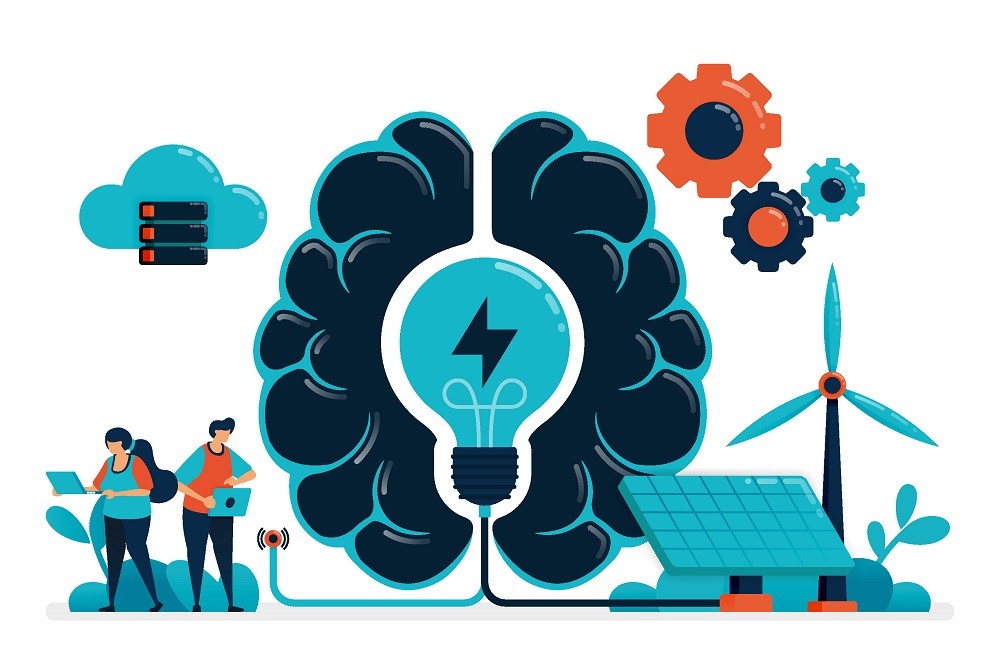ASW inženjering applying A.I. in Energy Sector: creating the new era of renewable energy prediction

Over the last decade, artificial intelligence has had a long history of exceptional and successful applications. However, until the rise of computing power the influence of its subfield - machine learning in various industries hasn’t been completely recognized. Among them, there is undoubtedly the energy sector, in which the application of the above-mentioned technologies has proven to be very successful. The reason for this setting is the availability of a large amount of data from which algorithms can learn.
Germany, a country known for a successful transition to renewable energy sources, is now facing serious problems with networks that cannot support the unpredictable nature of wind and solar energy. This challenge spurred the EweLiNe research project, launched in cooperation with local institutes and companies. This project aims to predict the expected amount of renewable energy sources at a given time while keeping the focus on grid stability.
The project that ASW completed implies the same goal: prediction of individual renewable energy production by using advanced artificial intelligence algorithms incorporated in asw:maximus solution. The realization of the project is based on domestic resources by establishing cooperation with ASW inženjering team and boosted by the experts from the Faculty of Mathematics in Belgrade who participated in the creation of algorithms.
The methodology consists of the following steps: data processing (data cleanup, transformation, statistics calculations), a database formation, applying machine learning (time aggregation of data, creating input variables for models as well as the models themselves), and evaluation (new data testing and visualization). The data used by machine learning algorithms include historical events and calculations, as well as equipment properties (type, environment data, specification, installation date, etc.).
It is especially important to emphasize the transparency of this data processing step. If domain experts can understand the variables that are incorporated into a model, they are also able to recommend its extensions and assist their users in finding the causes of potential errors. They can also enable managers to understand the model and thus make better use of it as a decision aid.
Through the implementation of this project, the Big Data architecture required for such a real-time decision-making system is being set up. This creates an impressive strategic advantage, having in mind that each subsequent application would rely on the existing Big Data infrastructure.
Additionally, the prediction of energy production from alternative sources is not the only significant benefit provided by the applications of such technologies. The artificial intelligence algorithm can automatically identify the type of object included, whether it is a supermarket, a bank, or a high school.
On the axis of power consumption, the algorithm can detect, as well as categorize anomalies in real-time. Thereafter, the users are reached by the notifications which provide them with data that enables them to make quick decisions to avoid large financial losses.
By monitoring the daily energy consumption shifts of individual consumers, the algorithm can accurately predict the future energy demand. Provided predictions are used for planning energy production with the most precise level of accuracy, as well as the optimal usage of storage systems.
Taking into account that AI-based algorithms can predict demand growth, as well as the periods of overproduction, the estimate of real savings is 10% of total consumption and could be achieved only by resource optimization - without the implementation of any new infrastructure segments.
Through the predictions of the production of alternative energy sources, ASW stays on track with the latest world trends in the implementation of cutting-edge technologies in the energy sector.
The project supported by the ASW inženjering solutions significantly increases control and planning in one of the most promising areas within the energy sector and represents a pioneering step towards the application of artificial intelligence in the field of production, distribution, and electricity consumption, as well as new significant projects within the industry in years to come.
Request a demo
Want to know more about our product and it’s features?